【全程复习方略】高中英语(人教版选修八)多媒体教学优质课件:Unit 5 Meeting your ancestors Learning about Language(共48张PPT)
文档属性
| 名称 | 【全程复习方略】高中英语(人教版选修八)多媒体教学优质课件:Unit 5 Meeting your ancestors Learning about Language(共48张PPT) |  | |
| 格式 | zip | ||
| 文件大小 | 3.3MB | ||
| 资源类型 | 教案 | ||
| 版本资源 | 人教版(新课程标准) | ||
| 科目 | 英语 | ||
| 更新时间 | 2014-07-19 18:12:57 | ||
图片预览

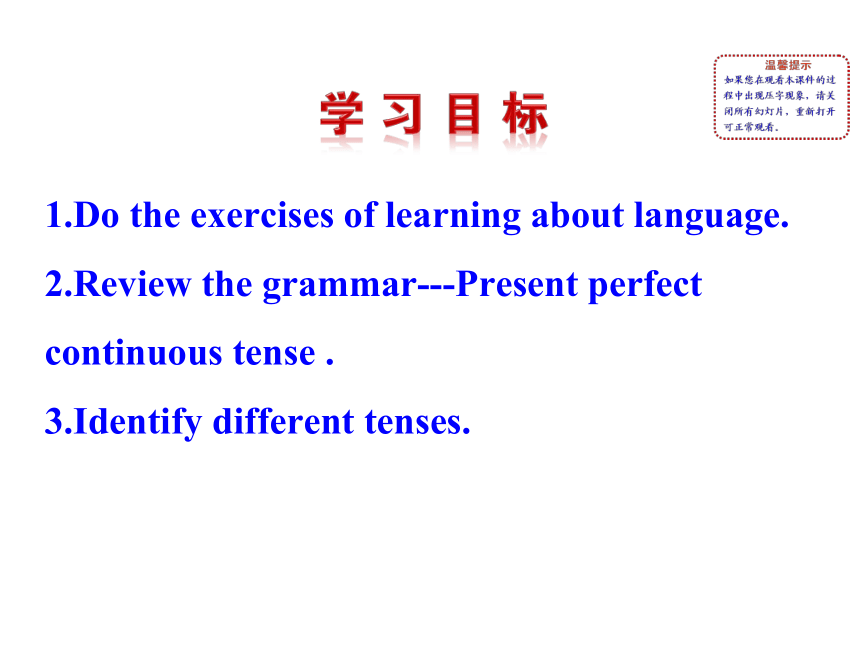
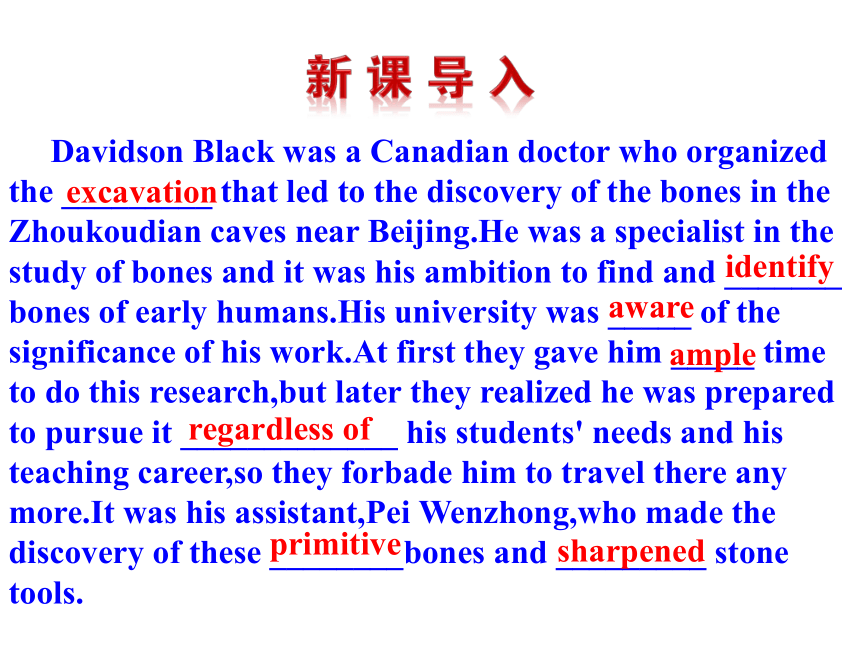
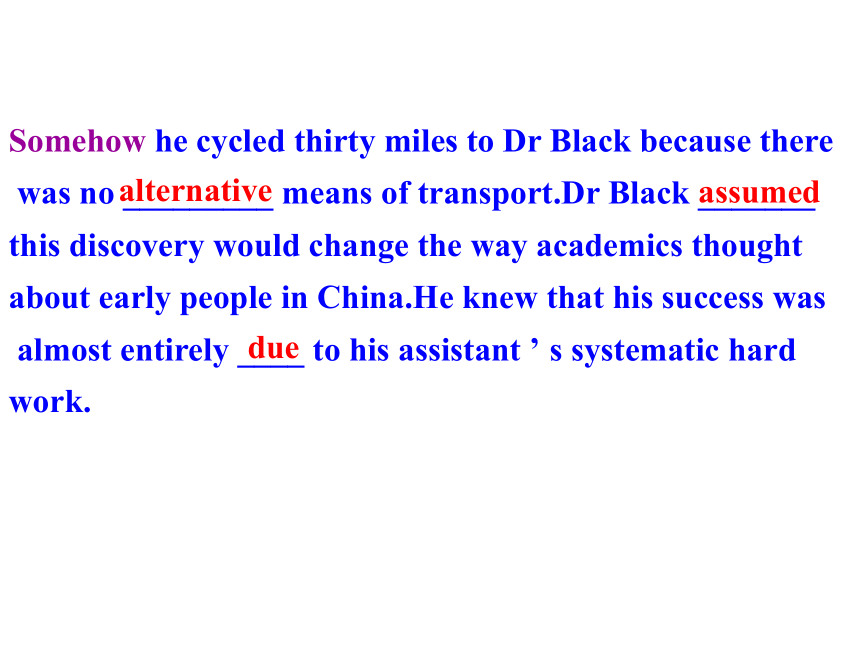
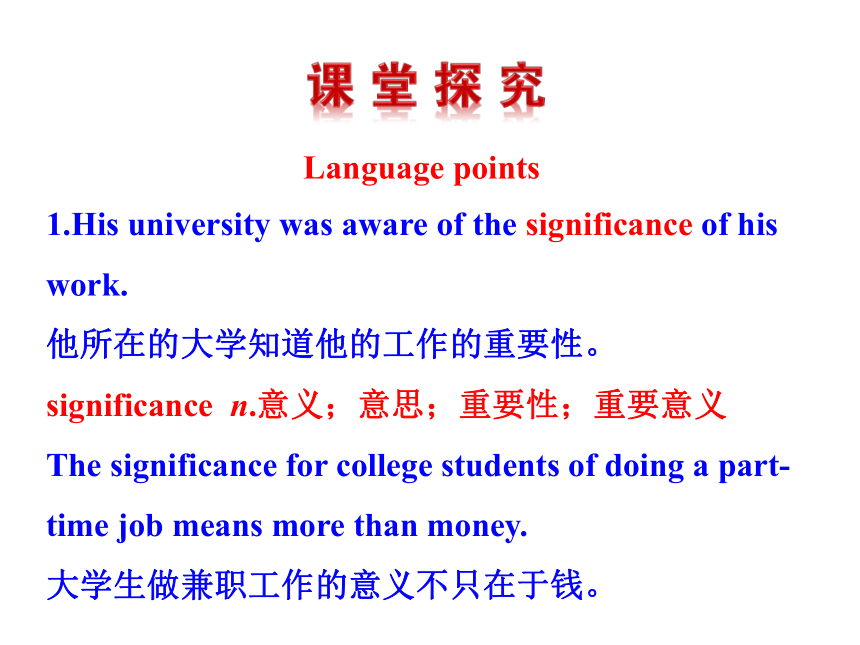
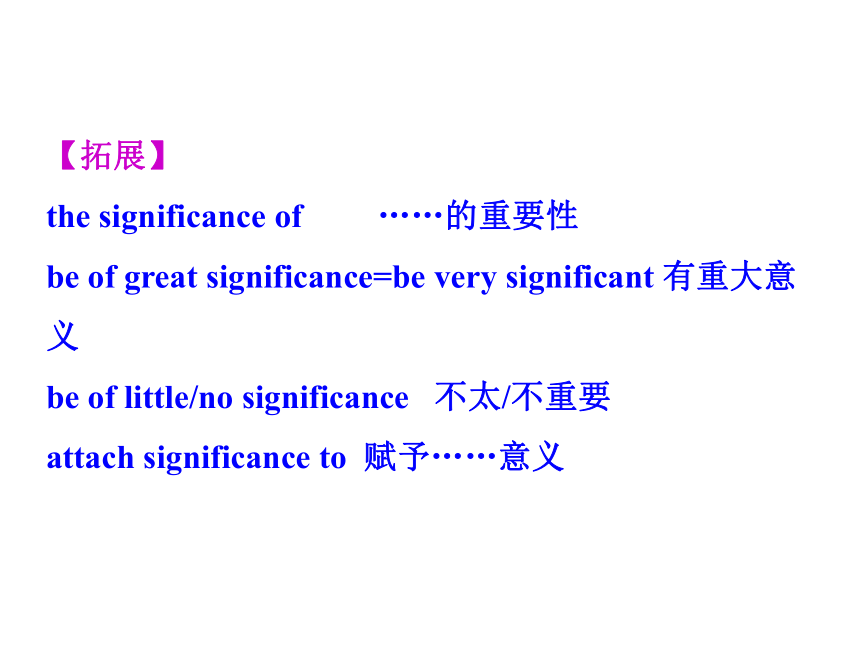
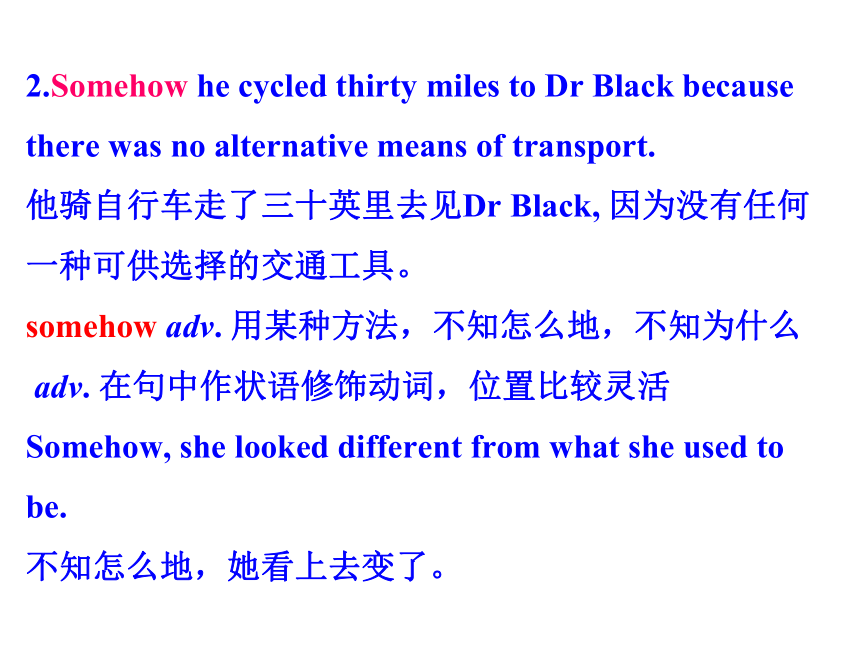
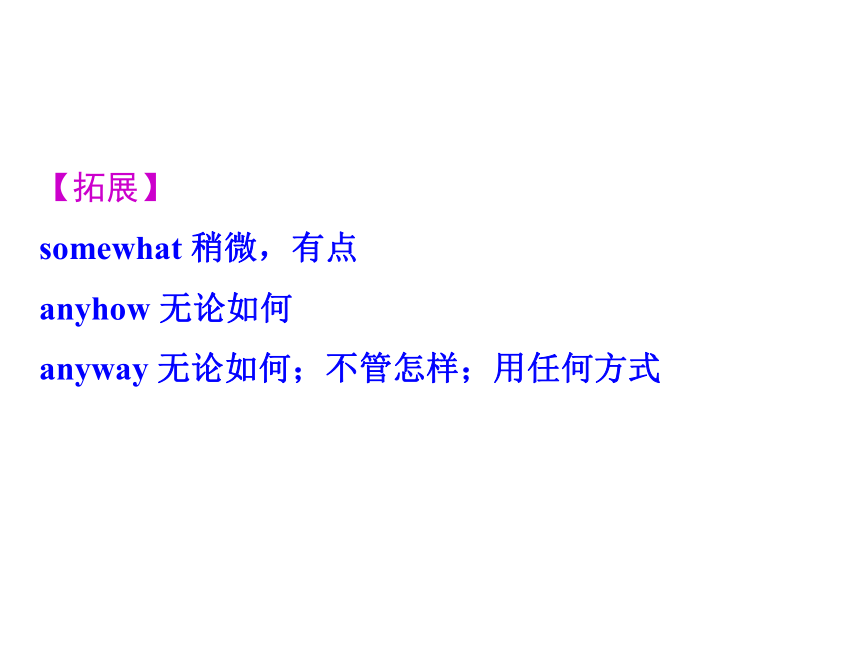
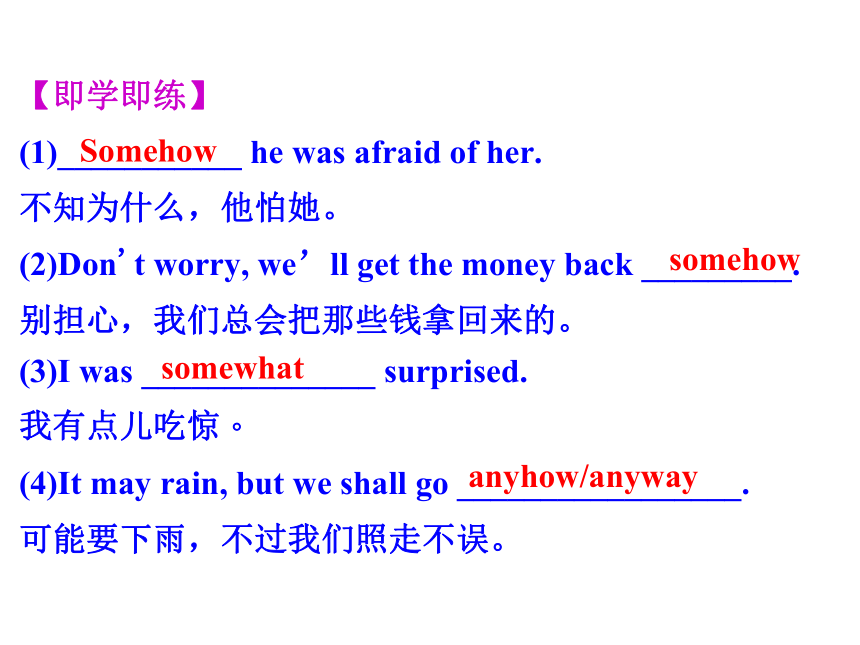
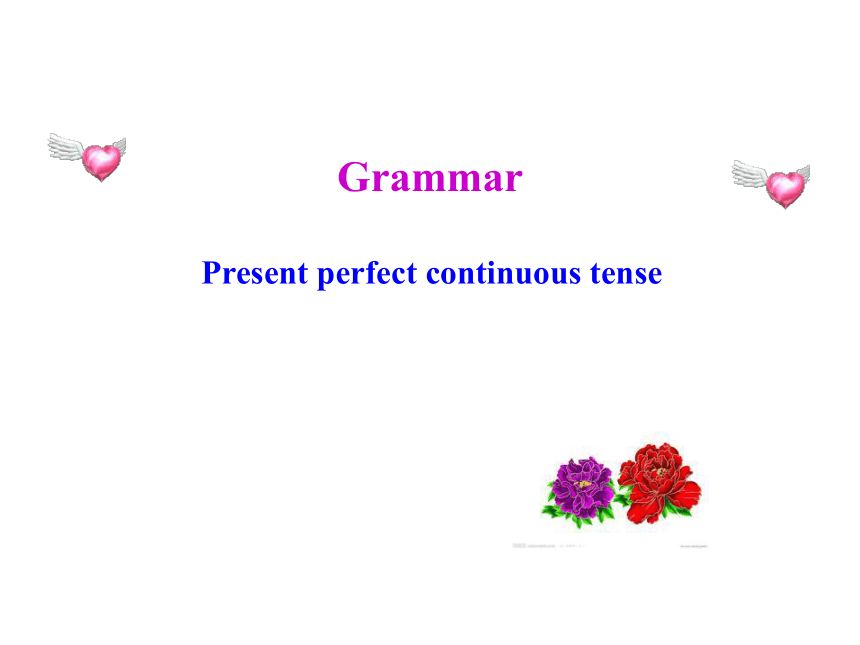

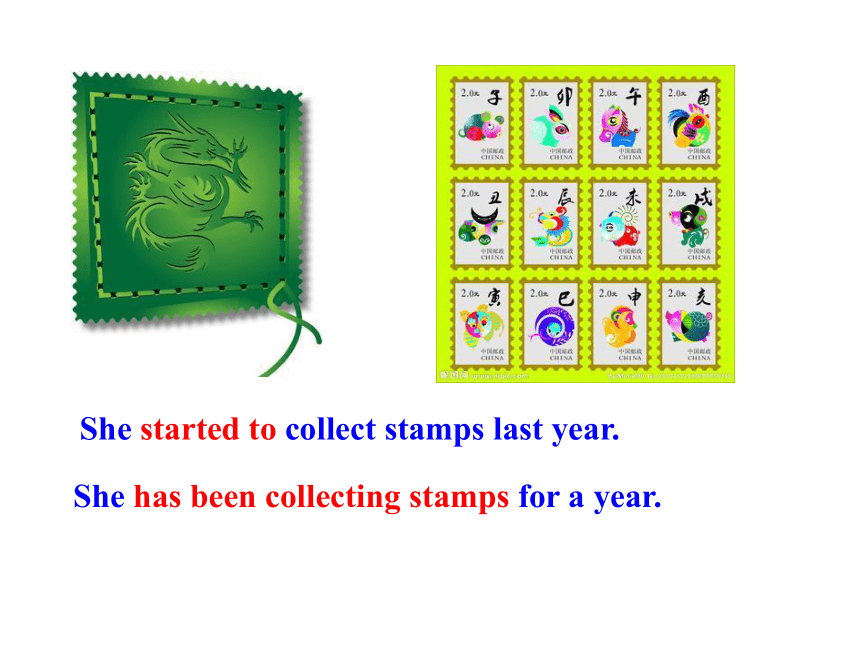
文档简介
课件48张PPT。Unit 5 Meeting your ancestors
Learning about Language1.Do the exercises of learning about language.
2.Review the grammar---Present perfect continuous tense .
3.Identify different tenses. Davidson Black was a Canadian doctor who organized the _________ that led to the discovery of the bones in the
Zhoukoudian caves near Beijing.He was a specialist in the study of bones and it was his ambition to find and _______ bones of early humans.His university was _____ of the
significance of his work.At first they gave him _____ time to do this research,but later they realized he was prepared to pursue it _____________ his students' needs and his teaching career,so they forbade him to travel there any more.It was his assistant,Pei Wenzhong,who made the discovery of these ________bones and _________ stone tools.excavationidentifyawareampleregardless of primitivesharpenedSomehow he cycled thirty miles to Dr Black because there
was no _________ means of transport.Dr Black _______
this discovery would change the way academics thought
about early people in China.He knew that his success was
almost entirely ____ to his assistant ’ s systematic hard
work.alternativeassumeddue1.His university was aware of the significance of his work.
他所在的大学知道他的工作的重要性。
significance n.意义;意思;重要性;重要意义
The significance for college students of doing a part-time job means more than money.
大学生做兼职工作的意义不只在于钱。Language points【拓展】
the significance of ……的重要性
be of great significance=be very significant 有重大意义
be of little/no significance 不太/不重要
attach significance to 赋予……意义2.Somehow he cycled thirty miles to Dr Black because there was no alternative means of transport. 他骑自行车走了三十英里去见Dr Black, 因为没有任何一种可供选择的交通工具。 somehow adv. 用某种方法,不知怎么地,不知为什么 adv. 在句中作状语修饰动词,位置比较灵活 Somehow, she looked different from what she used to be. 不知怎么地,她看上去变了。【拓展】 somewhat 稍微,有点 anyhow 无论如何 anyway 无论如何;不管怎样;用任何方式【即学即练】 (1)___________ he was afraid of her. 不知为什么,他怕她。 (2)Don't worry, we’ll get the money back _________. 别担心,我们总会把那些钱拿回来的。Somehowsomehow(3)I was ______________ surprised. 我有点儿吃惊。 (4)It may rain, but we shall go _________________. 可能要下雨,不过我们照走不误。anyhow/anywaysomewhatPresent perfect continuous tense Grammar I have been collecting shells for five years.
五年来我一直收集贝壳。I started to collect shells five years ago.
我五年前开始收集贝壳。She started to collect stamps last year.She has been collecting stamps for a year.
He ___________________ with his friend.nowhas been talking The telephone _________________ for almost a minute. The sound has continued about one minute .The telephone is ringing.has been ringing 现在完成进行时 含义:动作自过去某时开始,一直延续到现在,并且还将持续下去;动作从过去某时开始,一直延续到说话时刻,可能刚刚结束。进行时
I am reading the book.
完成时
I have read the book.
现在完成进行时
I have been reading the book.现在正在读已经读过从过去截至到说话为止,一直在读1.结构(“三合一”结构):
(1)肯定句: have/has been+V-ing
(从过去到现在)一直在做某事
我在这坐了一个下午了。
他弟弟十岁起就一直收集各种各样的邮票。 I have been sitting here for the afternoon.His brother has been collecting stamps since he was 10.(2)否定句:have/has not been+V-ing
没有一直在做某事
我一个星期没有给花浇水了。
这些年,他一直都没有在这教书。I haven’t been watering the flowers for a week.He hasn’t been teaching here these years.(3)疑问句:
Have/Has+主语+been+V-ing ?
你一直在写一本小说吗?
他一直给你写信吗?Have you been writing a novel?Has he been writing letters to you?My mother has been cleaning the room all day.Picture 1Mother
clean the room
all day【即学即练】看图,根据提示词,表达句子。he
cry
three hoursHe has been crying for three hours.Picture 2We haven't been taking a rest all day.Picture 3we
take a rest
all day it
rain
these few daysIt has been raining these few days.Picture 4I'm tired because I've been running.
我很累因为我一直跑步到现在。
(强调动作一直进行并持续到现在)
对比:I'm tired because I've run.
我累了因为我跑步了。(强调动作已完成)2. 用法
(1)现在完成进行时可以表示一个从过去某时开始一直在进行并持续到现在的动作。这个动作刚刚结束,对现在有影响。I have been reading for 2 hours.
[I am still reading now.] (2)现在完成进行时可以表示一个从过去某时开始一直持续到现在的动作。这个动作现在仍在进行中。(4) 表示从过去到现在反复发生的动作。 You have been saying that for five years. 这话你已经说了有五年了。(3) 和进行时一样,现在完成进行时也往往带有感彩(如赞扬、厌恶等)。
What have you been doing all the time?
这半天你在干什么? 3. 时间状语
(1) 现在完成进行时通常 和“for…”或“since…”所引导的时间状语连用。
雨已经下了三个小时。
I have been waiting for a letter from my parents for two days.
We have been studying here since 2004. 我这两天来一直在等我父母的回信。我们自从2004年开始一直在这里读书。It has been raining for three hours. (2)现在完成进行时还可以与these few days, this week, all the time,all night, all the morning, all one’s life, during the night, recently等连用:
I’ve been writing letters all this morning.
我写了一上午的信。
I have been doing this all my life.
这个我做了一辈子啦。
Recently he has been doing his work quite regularly.
近来他都按时做作业。时态对比1.现在完成进行时和现在进行时比较:2.现在完成进行时和现在完成时比较:1. 未完结性
现在完成时强调动作的最后的结果,表示动作已经
结束、完成;
现在完成进行时强调动作本身,表示动作还没有结束、完成 (有延续性)。
I have read this novel. (已读完)
I have been reading this novel. (还在读)
They have widened the road.
(路加宽了)
They have been widening the road.
(路还在加宽)现在完成进行时和现在完成时的区别2. 刚完结性的结果
现在完成进行时和现在完成时皆可表示动作对现在产生的结果(影响),
但现在完成进行时所表示的结果 是刚刚完成的动作的结果 consequence ;(是临时的/直接的)
而现在完成时所表示的则是最后的结果/长久的影响(result)。
(动作可能刚结束,也可能早已结束)We have been cleaning the classroom. (a)
We have cleaned the classroom.(b)
(a)“我们打扫教室来着。”表示教室刚刚打扫过,其目前直接的结果可能是:我们身上都是灰或是我们很累。( b)“我们把教室打扫过了。” 教室可能是昨天打扫的,其结果是:现在教室很清洁,可以用。
Your eyes are red and puffy. Have you been crying? 你的眼睛又红又肿,你是不是哭来着?
(“哭”的动作刚刚结束,它是眼睛又红又肿的原因。)3. 感彩
现在完成进行时比较生动,有时含有明显的感彩;
而现在完成时往往只说明一个事实,一种影响或结果,平铺直叙,没有什么感彩可言。
Recently Mary has been doing her work regularly.(a)
Recently Mary has done her work regularly.(b)
(a)句显然是在表扬玛丽。(b)只说明一个事实。Who's been eating my apples?(a)
Who's eaten my apples?(b)
(a)句有强烈的感彩,表示愤怒不满;兼有进行
时态,所以有“苹果未被全部吃光”的意思,
(b)句只是希望回答一个问题。
完成时态,说明“苹果一个不剩了”。4. 重复性
现在完成进行时往往表示动作在重复。
现在完成时则常常不带重复性。
Have you been meeting her lately?
(你近来常见到她吗?)
Have you met her lately?
(你近来见到过她吗?)5.习惯性,口语化
现代英语中,特别是口语,有一种倾向,就是对于像sit, lie, wait, stay, look等这样的动词,用现在完成进行时比用现在完成时更合乎习惯。
I have been sitting all afternoon.
I have been waiting for you since morning.
I have been staying in a hotel so far.比较:
I have been singing all afternoon.
(口语倾向于用现在完成进行时)
I have sung all afternoon.⑴有些动词(work, study, live, teach等)用现在完成进行时与现在完成时表达的意思差不多。试比较:
The teacher has been teaching at this school for ten years.
十年来,那位老师一直在这所学校教书。
The teacher has taught at this school for ten years.
那位老师在这所学校已经教了十年书了。(2)一些表示静态的动词往往只能用在现在完成进行时中。这样的静态动词主要有lie, stand, sit, wait, rain等。
She has been lying in bed for a week.
(她已经卧床一周了。)
I have been waiting for you for two hours.
(我已经等你两个小时了。) 1. 现在完成进行时可以表示一个从过去某时开始一直持续到现在的动作。这个动作对现在有影响。
I'm tired because I've been running.
2. 现在完成进行时可以表示一个从过去某时开始一直持续到现在的动作。这个动作现在仍在继续中。
I have been reading for 2 hours.
[I am still reading now.] 3.现在完成进行时可以和since, for+一段时间,
these few days, all this time(这段时间 ), all along(始终,一直), all the time(一直),all night, all the morning, all one’s life, today, this week, this month, during the night, recently等状语连用。
我读了3小时的书。
I have been reading for 3 hours.
我写了一上午的信。
I’ve been writing letters all this morning.1.(2012·安徽高考)In order to find the missing child,
villagers _____ all they can over the past five hours.
A. did B. do
C. had done D. have been doing【解析】选D。考查动词时态。句意:为了找到那名失踪儿童,在过去的五个小时里村民们做了他们所能做的一切事情。根据时间状语over the past five hours可知,应该使用现在完成时或现在完成进行时。A项是一般过去时,B项是一般现在时,C项是过去完成时,都不符合题意。2.(2012·湖南高考)—I remember you were a talented pianist at college.Can you play the piano for me?
—Sorry,I_______ the piano for years.
A.don’t play B.wasn’t playing
C.haven’t played D.hadn’t played【解析】选C。考查时态。句意:——我记得在大学的时候你是个才华横溢的钢琴家。你能给我弹奏一曲吗?——抱歉,我已经好多年没弹钢琴了。由情景可知,不弹钢琴这个动作应该是由过去延续到现在,符合现在完成时的用法,故C项正确。A项为一般现在时;B项为过去进行时;D项为过去完成时。Homework1.Learn all the language points by heart.
2.Review the rules of grammar.
3.Do the exercises on your paper. A strong man will struggle with the storms of fate.
强者能同命运的风暴抗争。
Learning about Language1.Do the exercises of learning about language.
2.Review the grammar---Present perfect continuous tense .
3.Identify different tenses. Davidson Black was a Canadian doctor who organized the _________ that led to the discovery of the bones in the
Zhoukoudian caves near Beijing.He was a specialist in the study of bones and it was his ambition to find and _______ bones of early humans.His university was _____ of the
significance of his work.At first they gave him _____ time to do this research,but later they realized he was prepared to pursue it _____________ his students' needs and his teaching career,so they forbade him to travel there any more.It was his assistant,Pei Wenzhong,who made the discovery of these ________bones and _________ stone tools.excavationidentifyawareampleregardless of primitivesharpenedSomehow he cycled thirty miles to Dr Black because there
was no _________ means of transport.Dr Black _______
this discovery would change the way academics thought
about early people in China.He knew that his success was
almost entirely ____ to his assistant ’ s systematic hard
work.alternativeassumeddue1.His university was aware of the significance of his work.
他所在的大学知道他的工作的重要性。
significance n.意义;意思;重要性;重要意义
The significance for college students of doing a part-time job means more than money.
大学生做兼职工作的意义不只在于钱。Language points【拓展】
the significance of ……的重要性
be of great significance=be very significant 有重大意义
be of little/no significance 不太/不重要
attach significance to 赋予……意义2.Somehow he cycled thirty miles to Dr Black because there was no alternative means of transport. 他骑自行车走了三十英里去见Dr Black, 因为没有任何一种可供选择的交通工具。 somehow adv. 用某种方法,不知怎么地,不知为什么 adv. 在句中作状语修饰动词,位置比较灵活 Somehow, she looked different from what she used to be. 不知怎么地,她看上去变了。【拓展】 somewhat 稍微,有点 anyhow 无论如何 anyway 无论如何;不管怎样;用任何方式【即学即练】 (1)___________ he was afraid of her. 不知为什么,他怕她。 (2)Don't worry, we’ll get the money back _________. 别担心,我们总会把那些钱拿回来的。Somehowsomehow(3)I was ______________ surprised. 我有点儿吃惊。 (4)It may rain, but we shall go _________________. 可能要下雨,不过我们照走不误。anyhow/anywaysomewhatPresent perfect continuous tense Grammar I have been collecting shells for five years.
五年来我一直收集贝壳。I started to collect shells five years ago.
我五年前开始收集贝壳。She started to collect stamps last year.She has been collecting stamps for a year.
He ___________________ with his friend.nowhas been talking The telephone _________________ for almost a minute. The sound has continued about one minute .The telephone is ringing.has been ringing 现在完成进行时 含义:动作自过去某时开始,一直延续到现在,并且还将持续下去;动作从过去某时开始,一直延续到说话时刻,可能刚刚结束。进行时
I am reading the book.
完成时
I have read the book.
现在完成进行时
I have been reading the book.现在正在读已经读过从过去截至到说话为止,一直在读1.结构(“三合一”结构):
(1)肯定句: have/has been+V-ing
(从过去到现在)一直在做某事
我在这坐了一个下午了。
他弟弟十岁起就一直收集各种各样的邮票。 I have been sitting here for the afternoon.His brother has been collecting stamps since he was 10.(2)否定句:have/has not been+V-ing
没有一直在做某事
我一个星期没有给花浇水了。
这些年,他一直都没有在这教书。I haven’t been watering the flowers for a week.He hasn’t been teaching here these years.(3)疑问句:
Have/Has+主语+been+V-ing ?
你一直在写一本小说吗?
他一直给你写信吗?Have you been writing a novel?Has he been writing letters to you?My mother has been cleaning the room all day.Picture 1Mother
clean the room
all day【即学即练】看图,根据提示词,表达句子。he
cry
three hoursHe has been crying for three hours.Picture 2We haven't been taking a rest all day.Picture 3we
take a rest
all day it
rain
these few daysIt has been raining these few days.Picture 4I'm tired because I've been running.
我很累因为我一直跑步到现在。
(强调动作一直进行并持续到现在)
对比:I'm tired because I've run.
我累了因为我跑步了。(强调动作已完成)2. 用法
(1)现在完成进行时可以表示一个从过去某时开始一直在进行并持续到现在的动作。这个动作刚刚结束,对现在有影响。I have been reading for 2 hours.
[I am still reading now.] (2)现在完成进行时可以表示一个从过去某时开始一直持续到现在的动作。这个动作现在仍在进行中。(4) 表示从过去到现在反复发生的动作。 You have been saying that for five years. 这话你已经说了有五年了。(3) 和进行时一样,现在完成进行时也往往带有感彩(如赞扬、厌恶等)。
What have you been doing all the time?
这半天你在干什么? 3. 时间状语
(1) 现在完成进行时通常 和“for…”或“since…”所引导的时间状语连用。
雨已经下了三个小时。
I have been waiting for a letter from my parents for two days.
We have been studying here since 2004. 我这两天来一直在等我父母的回信。我们自从2004年开始一直在这里读书。It has been raining for three hours. (2)现在完成进行时还可以与these few days, this week, all the time,all night, all the morning, all one’s life, during the night, recently等连用:
I’ve been writing letters all this morning.
我写了一上午的信。
I have been doing this all my life.
这个我做了一辈子啦。
Recently he has been doing his work quite regularly.
近来他都按时做作业。时态对比1.现在完成进行时和现在进行时比较:2.现在完成进行时和现在完成时比较:1. 未完结性
现在完成时强调动作的最后的结果,表示动作已经
结束、完成;
现在完成进行时强调动作本身,表示动作还没有结束、完成 (有延续性)。
I have read this novel. (已读完)
I have been reading this novel. (还在读)
They have widened the road.
(路加宽了)
They have been widening the road.
(路还在加宽)现在完成进行时和现在完成时的区别2. 刚完结性的结果
现在完成进行时和现在完成时皆可表示动作对现在产生的结果(影响),
但现在完成进行时所表示的结果 是刚刚完成的动作的结果 consequence ;(是临时的/直接的)
而现在完成时所表示的则是最后的结果/长久的影响(result)。
(动作可能刚结束,也可能早已结束)We have been cleaning the classroom. (a)
We have cleaned the classroom.(b)
(a)“我们打扫教室来着。”表示教室刚刚打扫过,其目前直接的结果可能是:我们身上都是灰或是我们很累。( b)“我们把教室打扫过了。” 教室可能是昨天打扫的,其结果是:现在教室很清洁,可以用。
Your eyes are red and puffy. Have you been crying? 你的眼睛又红又肿,你是不是哭来着?
(“哭”的动作刚刚结束,它是眼睛又红又肿的原因。)3. 感彩
现在完成进行时比较生动,有时含有明显的感彩;
而现在完成时往往只说明一个事实,一种影响或结果,平铺直叙,没有什么感彩可言。
Recently Mary has been doing her work regularly.(a)
Recently Mary has done her work regularly.(b)
(a)句显然是在表扬玛丽。(b)只说明一个事实。Who's been eating my apples?(a)
Who's eaten my apples?(b)
(a)句有强烈的感彩,表示愤怒不满;兼有进行
时态,所以有“苹果未被全部吃光”的意思,
(b)句只是希望回答一个问题。
完成时态,说明“苹果一个不剩了”。4. 重复性
现在完成进行时往往表示动作在重复。
现在完成时则常常不带重复性。
Have you been meeting her lately?
(你近来常见到她吗?)
Have you met her lately?
(你近来见到过她吗?)5.习惯性,口语化
现代英语中,特别是口语,有一种倾向,就是对于像sit, lie, wait, stay, look等这样的动词,用现在完成进行时比用现在完成时更合乎习惯。
I have been sitting all afternoon.
I have been waiting for you since morning.
I have been staying in a hotel so far.比较:
I have been singing all afternoon.
(口语倾向于用现在完成进行时)
I have sung all afternoon.⑴有些动词(work, study, live, teach等)用现在完成进行时与现在完成时表达的意思差不多。试比较:
The teacher has been teaching at this school for ten years.
十年来,那位老师一直在这所学校教书。
The teacher has taught at this school for ten years.
那位老师在这所学校已经教了十年书了。(2)一些表示静态的动词往往只能用在现在完成进行时中。这样的静态动词主要有lie, stand, sit, wait, rain等。
She has been lying in bed for a week.
(她已经卧床一周了。)
I have been waiting for you for two hours.
(我已经等你两个小时了。) 1. 现在完成进行时可以表示一个从过去某时开始一直持续到现在的动作。这个动作对现在有影响。
I'm tired because I've been running.
2. 现在完成进行时可以表示一个从过去某时开始一直持续到现在的动作。这个动作现在仍在继续中。
I have been reading for 2 hours.
[I am still reading now.] 3.现在完成进行时可以和since, for+一段时间,
these few days, all this time(这段时间 ), all along(始终,一直), all the time(一直),all night, all the morning, all one’s life, today, this week, this month, during the night, recently等状语连用。
我读了3小时的书。
I have been reading for 3 hours.
我写了一上午的信。
I’ve been writing letters all this morning.1.(2012·安徽高考)In order to find the missing child,
villagers _____ all they can over the past five hours.
A. did B. do
C. had done D. have been doing【解析】选D。考查动词时态。句意:为了找到那名失踪儿童,在过去的五个小时里村民们做了他们所能做的一切事情。根据时间状语over the past five hours可知,应该使用现在完成时或现在完成进行时。A项是一般过去时,B项是一般现在时,C项是过去完成时,都不符合题意。2.(2012·湖南高考)—I remember you were a talented pianist at college.Can you play the piano for me?
—Sorry,I_______ the piano for years.
A.don’t play B.wasn’t playing
C.haven’t played D.hadn’t played【解析】选C。考查时态。句意:——我记得在大学的时候你是个才华横溢的钢琴家。你能给我弹奏一曲吗?——抱歉,我已经好多年没弹钢琴了。由情景可知,不弹钢琴这个动作应该是由过去延续到现在,符合现在完成时的用法,故C项正确。A项为一般现在时;B项为过去进行时;D项为过去完成时。Homework1.Learn all the language points by heart.
2.Review the rules of grammar.
3.Do the exercises on your paper. A strong man will struggle with the storms of fate.
强者能同命运的风暴抗争。
